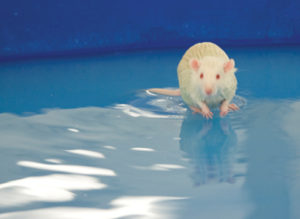 Wouldn’t it be nice if there was a way to delay dementia?
Wouldn’t it be nice if there was a way to delay dementia?
Well, in fact, there is. It’s been proven that exercise and mental health are closely linked. You can keep your brain healthy by moving your body.
The connection between exercise and mental health is not new. In fact, it’s so well-established that the World Health Organization recommends that people older than 65 get a minimum of 150 minutes of moderate aerobic exercise each week to preserve memory function.
In addition to improving brain health, exercise also improves muscle strength, cardiovascular health, and less deterioration of white matter inside the brain.
The Link Between Exercise and Mental Health Explained
Multiple studies show the benefits of exercise in fighting dementia and Alzheimer’s, but researchers have thus far been able to identify what makes exercise beneficial.

Iris, Greek messenger of the gods
But last month, an article in Nature Medicine presented findings that suggest the specific aspect of exercise that makes our brain healthier: a hormone called irisin. In Greek mythology, the messenger of the Gods is named Iris, and this hormone, identified in 2012, is named after her. It may, indeed, be a “godsend.”
During exercise, muscles release the hormone, irisin, which starts a chain reaction of biochemical responses related to energy metabolism. An international consortium of scientists focused on preventing and treating Alzheimer’s came together to study this.
All of the research was performed on mice. Dementia-ridden mice got a dose of irisin, and their memory improved. Then irisin production was inhibited in some healthy mice, and they got dementia. Additionally, mice who were given irisin had improved gene reactions that combated the protein, beta-amyloid. Beta-amyloid is the substance that clumps together to form the plaque present in Alzheimer patients.

Credit: med-associates.com
Scientists tested the effect of exercise on the lab rodents by making them swim an hour every day, five days a week. Some of the swimming mice were given a substance that inhibited the production of irisin. The mice that exercised and generated irisin performed better on memory tests. The swimming mice who were not allowed to produce irisin performed poorly.
These early tests strongly suggest that exercise delays dementia because of the production of irisin. However, the results are still only valid in mice. In the future, tests will be done on humans. If these prove successful, irisin may eventually be developed into a pharmaceutical treatment for dementia.

 Study Shows Link Between Exercise and Mental Health
Study Shows Link Between Exercise and Mental Health


 Final Messages of the Dying
Final Messages of the Dying
 Will I Die in Pain?
Will I Die in Pain?















